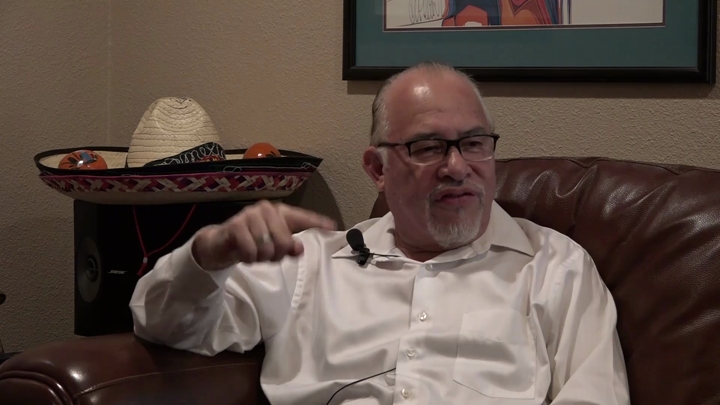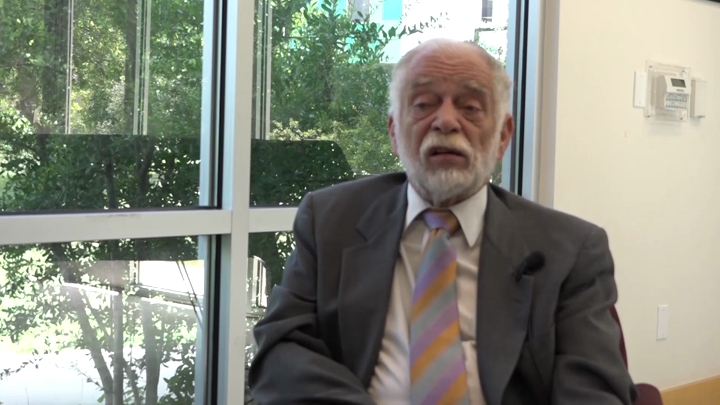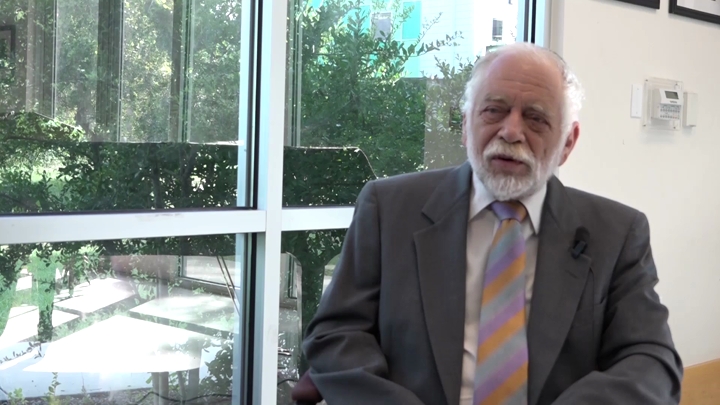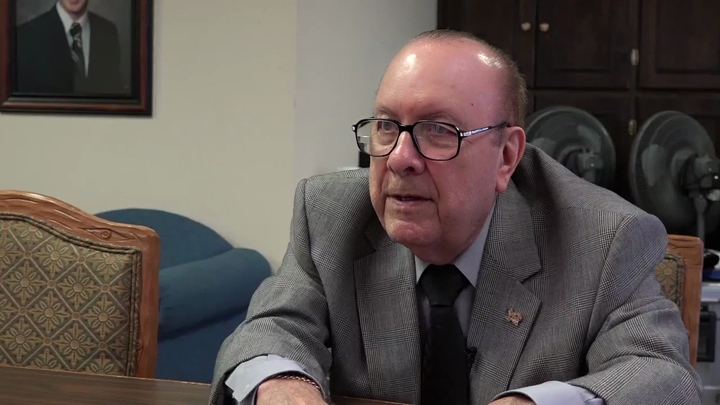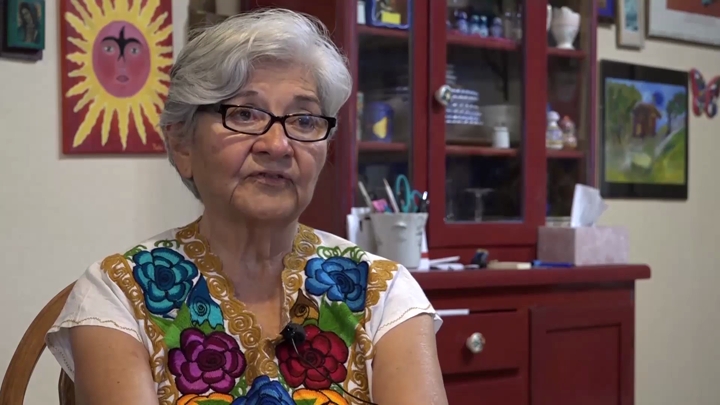Harrington / Law School in Michigan - Getting to Texas
sign up or sign in to add/edit transcript
Harrington : It also tells you what the priorities are in the community. I can sit here as a lawyer and think oh that is not good let us do a lawsuit. You can do you in Texas whatever lawsuit you want to file. It is such a repressive stay. If you are going to stop at priorities you have to take it from the people. Arionus : Let us back up a little bit. So after you left the seminary you went into law school. What type of law did you study? Harrington : I went from seminary to grad school to study philosophy and then went farm philosophy to law school. I went to the University of Detroit that is what I was doing my masters. Detroit at that time the law school had one of the first clinics in the country. So it was hands-on now virtually every law school has it. Arionus : What type of work did you do in the clinic? Harrington : I did several stuff which would be landlord tenant that kind of stuff. I did criminal cases. I tried criminal cases in Michigan, you could try criminal cases after one year of law school. That has got to be malpractice in reality. It was malpractice. But it was good because those folks scot-free representation. We were bubbling around as lost events it was probably better than what they were getting for my public defender. I remember once I was doing a trial, and I had not had evidence yet because the evidence is really key. But what happened was that the judge, the judge, the other side objected saying hearsay. I said no it is not it said to prevent malpractice the judge sort of explained how to do it. Was a real learning experience, and my idea was it to go to, I just wanted to get the water green. I do not care to go to somewhere prestigious. My whole direction was to come to South Texas so it did not matter where I went to law school. Law school at that time so I do not know what a polite word as may be a waste of time perhaps. In fact by the time I was in my third year I spent most of my time going to the Detroit Tigers baseball game. Which was right by the stadium. So it was just critical, I mean what I wanted to do you do not you do not learn of our school anyway. Probably two or three courses were relevant. Arionus : Can you explain that? You said that law school at that time was a waste of time? You said what you wanted to learn at that time you don’t learn in the classroom. What do you mean by that? Harrington : So most of law school is geared to making money and to what the traditional practices are what you are going into corporations or criminal and family law that kind of stuff. None of which I was going into so the trajectories were not there number one but number two it was just the old way of teaching law. It is changing now but then it was very high pounds and tradition. A lot of things like the state and trust I was not going to be a state lawyer. I had to take a year of it. And in corporations, I wasn’t going to be a corporate lawyer but I had to do a year of it. So I learned that stuff then promptly never used it for the rest of my life. Arionus : So I imagine that you had the sense that you wanted to use your law degree to work and community, had you already made that decision? Harrington : Absolutely, that is why I picked Detroit. It was convenient and I knew I would get practice in the clinic so that's exactly why I went there. I was going to stand a trade for that reason. And Wayne State University had a law school. I applied there. But I went to the University of church right because I also got a scholarship, a partial scholarship and then I could teach there at night. So I type business ethics at night which is kind of an oxymoron teaching business ethics. But I introduce them to Eldridge Cleaver. And some of the contemporary radicals. Arionus : Around what year is this that you’re working in Detroit? Harrington : It would have been 1970 to 73. Before you were born. Arionus : What made you do decide to move to South Texas? Harrington : Because of the work I was doing with the migrant farm worker's. That was going to be what I was going to dedicate my life to you. So I work with micro farmworkers and that’s what I was going to go. The thing is, that was doing the movement with Ceasar Chavez. I was the beginning and everybody was going to California. Well the people in South Texas need help to you so I made the decision to come to Texas rather than California. Arionus : What did you know about taxes at the time before you move? Harrington : During Christmas season two or three times I had time to Valley to meet people I had work with. Then I started off grad school at here at the university of Texas. Then I move to Detroit. Philosophy has different traditions and the one I experience here at the university of Texas west to mathematical and analytical. That is not what I was interested in so I went to Detroit because they had existentialism which I was more fascinated with. I was only here for a semester and then I went up. So I have familiarity with Texas. And ironically my folks were married here during the war at Fort Sam Houston in San Antonio. Pretty ironic.
| Interview | Interview with Jim Harrington |
| Subjects | Migration › Seasonal Migration |
| Migration › Migrant Labor | |
| Work › Occupations | |
| Community Organizations › Community outreach | |
| Education › Higher Education | |
| Education › Teachers and Administrators | |
| Court Cases | |
| Historic Periods › 1970s [Exact Date Unknown] | |
| People › Chavez, Cesar | |
| Ideology › Radicalism | |
| Tags | University of Texas at Austin |
| sign up or sign in to add/edit tags | |
| Interview date | 2016-06-13 |
| Interview source | CRBB Summer 2016 |
| Interviewees | Harrington, Jim |
| Locations | San Antonio, TX |
| Detroit, MI | |
| Duration | 00:06:33 |
| Citation | "Law School in Michigan - Getting to Texas ," from Jim Harrington oral history interview with , June 13, 2016, Austin, Civil Rights in Black and Brown Interview Database, https://crbb.tcu.edu/clips/5489/law-school-in-michigan-getting-to-texas, accessed February 27, 2026 |


